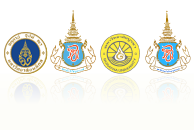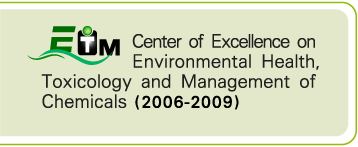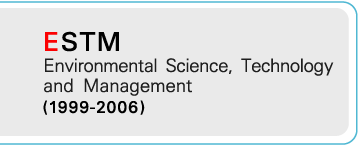| The co-residence of bacteriophages and their bacterial hosts in humans, animals, and environmental sources directed the use of bacteriophages to track origins of the pathogenic bacteria that can be found in contaminated water. The objective of this study was to enumerate bacteriophages of Aeromonas caviae (AecaKS148), Enterobacter sp. (EnspKS513), and Klebsiella pneumoniae (KlpnKS648) in water and evaluate their association with contamination sources (human vs. animals). Bacterial host strains were isolated from untreated wastewater in Bangkok, Thailand. A double layer agar technique was used to detect bacteriophages. All three bacteriophages were detected in polluted canal samples, with likely contamination from human wastewater, whereas none were found in non-polluted river samples. AecaKS148 were found to be associated with human fecal sources, while EnspKS513 and KlpnKS648 seemed to be equally prevalent in both human and animal fecal sources. Both bacteriophages were also present in polluted canals that could receive contamination from other fecal sources or the environment. In conclusion, all three bacteriophages were successfully monitored in Bangkok, Thailand. This study provided an example of bacteriophages to potentially be used as source identifiers of pathogen contamination. The results from this study will assist in controlling sources of pathogen contamination especially in developing countries.
แหล่งข้อมูล:
|
 Center of Excellence on Environmental Health and Toxicology (EHT)
Center of Excellence on Environmental Health and Toxicology (EHT)










